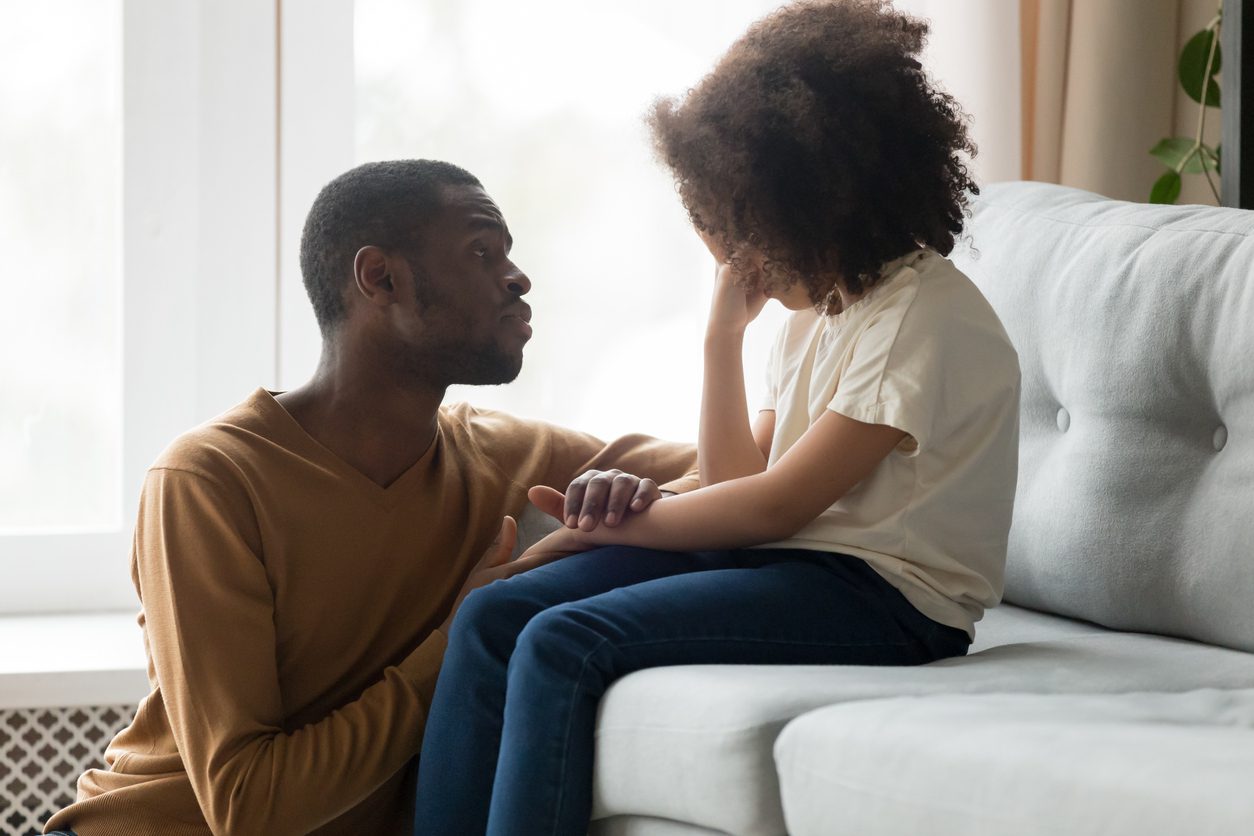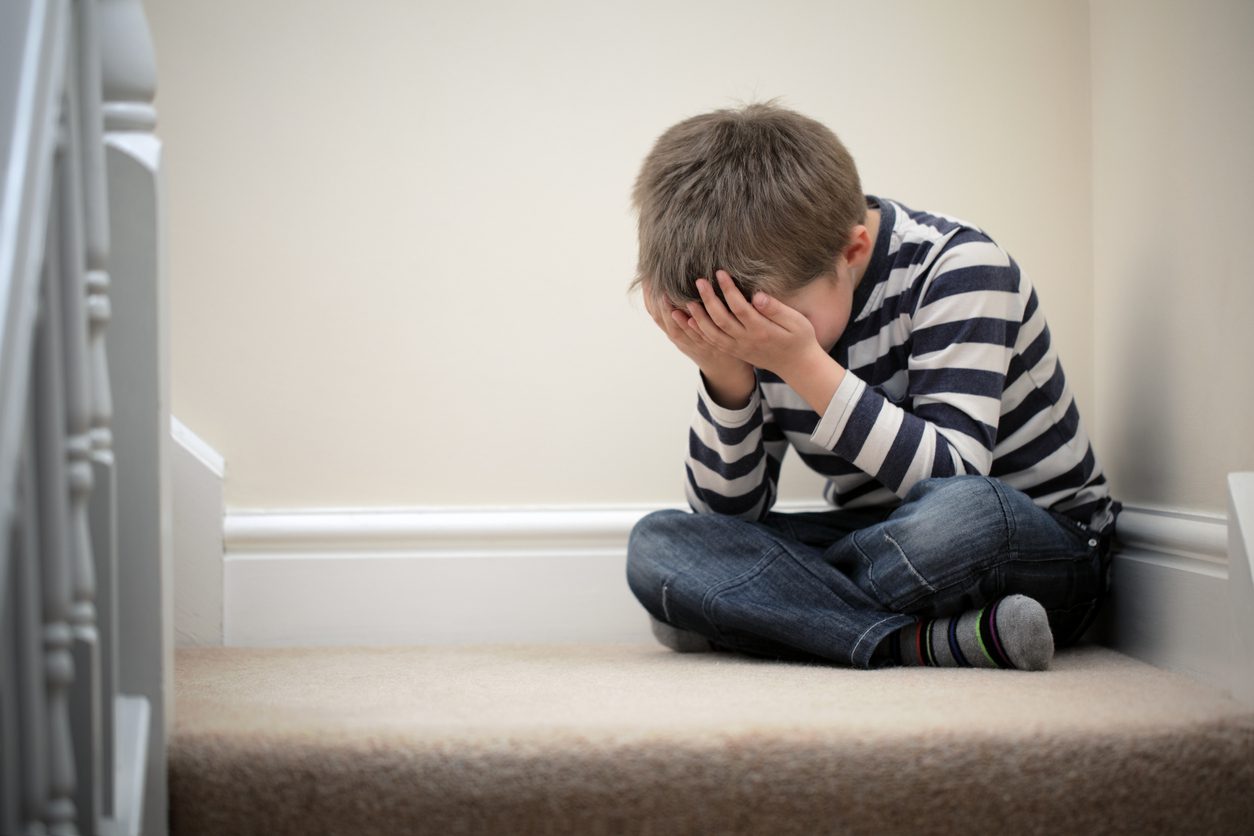With children’s mental health referrals at record levels, how can parents best help youngsters experiencing psychological distress while they wait for professional help?
Former primary school teacher Becky Cranham, founder of education resource experts PlanBee, has some practical ideas

Children and young people are shouldering much of the pain of the Covid pandemic. Isolated from their friends during lockdowns, faced with new Covid regulations at school, and worried about their futures, it has taken a huge toll on their mental wellbeing. So it’s hardly surprising that that there has been a huge rise in demand for child and adolescent mental health services (CAMHS).
In England, more than twice as many children and adolescents were referred to mental health services year on year as cases hit a record high. And this is a UK-wide crisis: in Scotland, too, CAMHS waiting lists have hit their highest point on record, with almost 12,000 young people waiting to be seen at the end of June. In Wales, children and young people are waiting as long as nine months to access professional mental health support.
Many parents are desperately worried about deteriorations in their children’s condition as they wait up to a year for their first appointment.
What can they do to improve their mental wellbeing in the meantime?

Becky says:
“Change can be unsettling. Changes out of our control can make us feel like we are being ‘done to’. When we feel ‘done to’, we can hold on tight to things that make us feel safe. We might see children becoming upset when the day’s snack isn’t what they expected, or when a game with their friends isn’t going the way they want. ”
When events like these are things children can’t cope with, they are a call for help. A shout for our understanding and empathy. Ask yourself what is beneath the behaviour?
“When a child is experiencing big emotions, when they have ‘lost the plot’ and cannot regulate, the adults around them need to share their calm. If you can separate the child from the feelings and share your ‘warm fuzzy feelings’ with them you can calm them.
“Whatever your role, try to see the child, not their emotion and not their behaviour. Really see the child. When you can see the child it is easier to empathise with them. It is easier to stay regulated despite the emotions flying around you. ”

Becky’s top tips:
Make time as a family when you can connect with each other
Turn screens off and tune into each other. You could go on a walk, play a board game, draw together. This time doesn’t have to involve spending money, often the free simple things are best. The more connected and in tune with each other your family are the easier it is to work together. When working as a team you will all feel more heard, supported and appreciated.
Make time to be playful
Play lowers stress levels, relaxes us and helps us connect. Be spontaneous wherever possible and make the mundane fun. Remember the play should be fun for everyone, so take turns deciding what you will do and set boundaries you all keep to. Take time to catch falling blossoms, to blow dandelions, to watch ants marching, to be silly.
Make time to be relaxed in each other’s company
As life slowly starts to return to normal try to hold on to some of those moments of calm stillness we experienced during lockdown. When lives are overly scheduled we lose the time to pause and think: this time is so important for our mental health and general wellbeing.
Model the behaviour you would like your children to copy
The more you practice naming and explaining feelings the better you and your children will become at regulating your emotions. Emotional literacy is really important. Give your children the vocabulary and skills to name, recognise and understand their emotions.
Set boundaries you all understand
If trips out are stressful try to work out why. If getting your children out of the front door leaves you exhausted, help them to feel excited about the trip and enlist their help with the planning and preparation. If your children go too far away from you when out, explain why they need to stay in view. If your children don’t want to return home, give them clear time warnings and help them come up with some ideas of what they might do when you get home.
Just as you try to separate a child’s emotions and behaviour from them, try to do the same with yourself. You may feel embarrassed, angry or disappointed by their behaviour. Own those feelings as your own and deal with them later.
Practical help to access NOW
Learn together with these FREE resources:
Read about regulation techniques, learn synonyms for emotions, try, fail and succeed together and develop a growth mindset.
Teach your children one of life’s most important lessons: no one knows everything and that is ok.
Connecting with nature can be really soothing. So get yourself a bird identification sheet, a British wildflowers identification sheet or a minibeast identification sheet and start learning together outside.
You can also download a week’s worth of activities to improve mental wellbeing here.
Help keep news FREE for our readers
Supporting your local community newspaper/online news outlet is crucial now more than ever. If you believe in independent journalism, then consider making a valuable contribution by making a one-time or monthly donation. We operate in rural areas where providing unbiased news can be challenging. Read More About Supporting The West Wales Chronicle


























